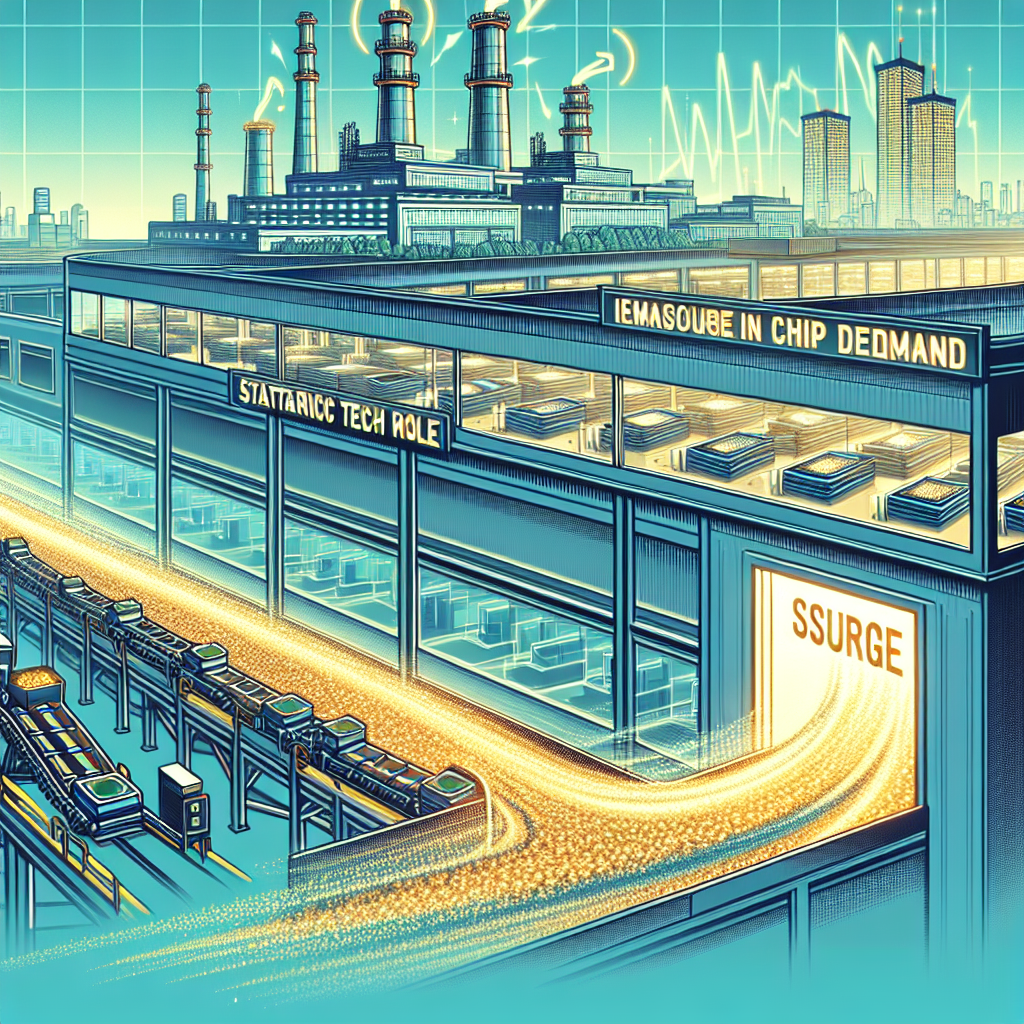Taiwan Semiconductor Manufacturing Co. (TSMC), the world’s leading semiconductor manufacturer, has reported significant financial performance, with a 25.8% increase in its July revenue from the same period last year. This growth highlights the sustained demand the chip industry has been witnessing, driven predominantly by the evolution and expansion of technology in various sectors including automotive, telecommunications, and consumer electronics.
According to the data released by TSMC, the July revenue reached NT$219.08 billion. The revenue figures from January to July this year also saw a robust increase, up by 37.6% y-o-y, totaling NT$1.49 trillion. These figures underscore not only the company’s strong market position but also the broader industry trend of increasing dependency on semiconductors.
Analysts suggest that the growth can be attributed to multiple factors. One vital component is the global shift toward advanced technology and digital transformation, catalyzed by the pandemic and continuing as businesses and consumers adapt to new technological norms. This shift has led to increased demands for high-end chips used in advanced computing, smartphones, and the burgeoning Internet of Things (IoT) devices.
Moreover, geopolitical tensions and supply chain diversification have also played a role. The U.S.-China tech war, for instance, has pushed many companies to reassess their supply chain and sourcing strategies, benefiting TSMC, which is seen as a neutral and reliable partner in the highly complex global semiconductor supply chain.
The reliance on TSMC underscores the strategic importance of Taiwan in the global tech landscape. Taipei’s handling of semiconductor diplomacy—balancing the tech needs of various countries while navigating geopolitical tensions—has become a critical element of global tech leadership. This places TSMC at the heart of a complex web of business and politics, underlining the firm’s importance beyond its financial metrics.
Despite the optimistic picture painted by the recent financial data, the semiconductor industry is known for its cyclical nature, and TSMC must still navigate potential challenges such as overcapacity, fluctuating demand for consumer electronics, and the potential for international regulations affecting global trade flows.
Looking forward, industry watchers are particularly attuned to any shifts in consumer demands or international policies that could influence TSMC’s operations. Market trends, especially in the automotive industry and the IoT space, will likely play a significant role in shaping the company’s strategies.
The strong financial performance reported by TSMC reflects not only the company’s robust operational resilience but also highlights its pivotal role in the global semiconductor space. As industries worldwide continue to innovate, the demand for semiconductors shows no sign of slowing, positioning TSMC as a key player in the global economic fabric for the foreseeable future.
Reference: The Economic Times; “Semiconductor major TSMC reports 25.8% YoY jump in July revenue; YTD up 37.6%”



